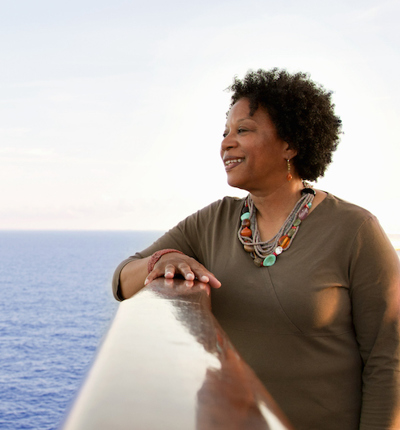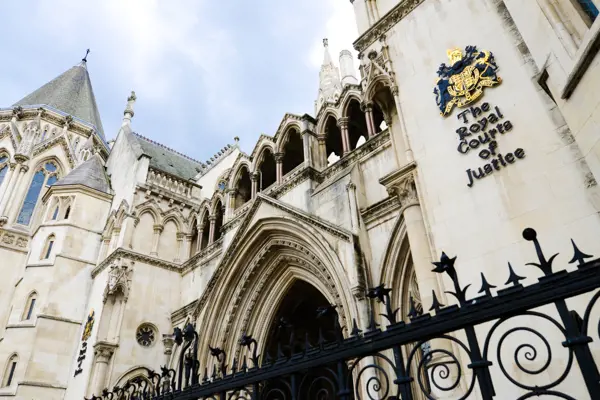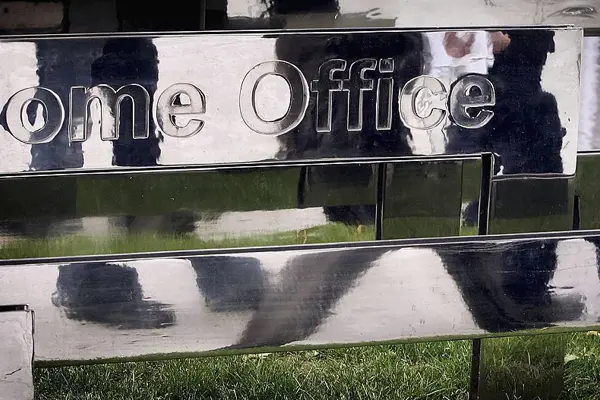
Cruise ship claims
Nearly two million British holidaymakers went on a cruise in 2019. For many on board, their holiday will have likely been an unforgettable experience. But when things go wrong, it can ruin your dream cruise.
If you or a loved one experienced an injury or illness on a cruise due to negligence, you may have grounds to bring a cruise ship claim and be entitled to compensation. Cruise liner operators have a duty of care for their passengers to ensure their wellbeing and safety is protected at all times.
At Leigh Day, we have an experienced team of specialist cruise ship accident solicitors. They’re on hand to provide support and advice for anyone involved in cruise accidents to ensure that your rights are upheld.
Contact our travel team
Call us on
0161 393 3551
In the event of an injury overseas
See our tips from legal holiday experts on what you should do if you or a loved one are injured whilst travelling
Types of cruise ship accident claims
From the moment you step on board a cruise liner, the carrier company are responsible for your health and wellbeing. They should take all necessary precautions to ensure you have a safe trip. If they fail to do this – and you are injured or ill because of their negligence – you may be able to make a claim against them.
The most common types of cruise ship claims are accidents and illnesses. These include:
- Slips, trips and falls on deck, including when embarking or disembarking the ship.
- Food poisoning or allergic reactions from onboard meals.
- Misdiagnosis or failure to treat any medical problems you may face on board by the ship’s doctor.
- Falling overboard or injuring yourself during storms due to poor safety measures.
- Accidents occurring during excursions arranged by the cruise ship company.
Compensation for cruise ship accidents
If your claim is successful, you should secure compensation from the cruise liner. This can be used to cover:
- The cost of your holiday.
- Any medical treatment needed, including medication, rehabilitation and transport to and from appointments.
- Your pain and suffering.
- Emotional distress or trauma.
- Loss of earnings – if you need time off work to recover.
How much compensation you receive will depend on how much the incident affects your livelihood. This includes the severity of your injuries and how long it will take to make a full recovery.
Download our safe travel guide
Discover the importance of the right holiday insurance, common travel pitfalls and how our travel law team can help if you’re injured abroad.
The Athens Convention
Cruise ships often travel on international waters, so you won’t necessarily be protected by UK laws. Instead, the Athens Convention is designed to protect passengers at sea and deal with any compensation claims against carriers.
This means if you are injured or fall ill while on board a ship, there are laws and conventions in place to protect you. The Athens Convention is in place to ensure you can obtain the compensation you’re entitled to and seek justice for any pain and suffering faced.
For a compensation claim to be successful, you will need to prove that the carrier was at fault. You will also need to start the claim process within two years of the incident.
Our holiday law experience
Cruise ship accident claims can be complex and specialist legal advice is often needed.
Our expert team of travel solicitors have helped hundreds of passengers who have suffered injuries and illnesses on board cruise ships through no fault of their own. We take the time to understand your experience, supporting in a sympathetic manner to provide detailed and tailored advice relevant to your claim.
The types of cases our specialist cruise ship injury solicitors have handled includes for:
- Slips and trips on board and disembarking cruise liners.
- Illness claims for food poisoning and norovirus outbreaks.
- Excursion accidents.
Check out our holiday and overseas travel claims page for more details on how we’ve helped travellers far and wide.
Contact our travel team
Call us on
0161 393 3551
Cruise ship claims: FAQs
Even if your incident happened in international waters, you should file your claim in the UK. Contact our team of cruise ship injury solicitors for a free initial consultation and they will advise on whether you have a claim and the next steps to take.
You can then work with your solicitor to gather any information or evidence to strengthen your claim. This may include:
- Photographs or CCTV of the incident, its location and any injuries sustained.
- Details of any witnesses to the accident.
- Medical records or reports.
- Any documents relating to your financial losses.
You should always seek medical attention first when involved in an accident on board a cruise ship. The carrier company should have trained professionals who can assist and help you.
When you feel up to it, you can then begin gathering any evidence about the accident to support bringing a claim when back home.
Under the Athens Convention, all cruise ship claims must be made within two years of the day you disembarked.
Exceptions may be made depending on the severity of the incident and in cases where the Athens Convention may not apply. However, it’s best to make a claim as soon as you can, while the incident is still fresh in your mind.
No, the Athens Convention protects passengers who are travelling through multiple waters and ports. So, no matter where the incident took place, you should be able to claim for compensation against the carrier if they are at fault.
It’s advisable to wait until you’re back in the UK to make your claim, but gathering any evidence you can in the meantime may help support your claim.
Usually, the carrier will be held responsible for any accidents that happen on a cruise. However, this will depend on who’s involved in the incident and whether you booked the cruise as part of a package holiday.
For incidents between passengers, the cruise carrier may not be liable unless evidence suggests they allowed the situation to occur.

